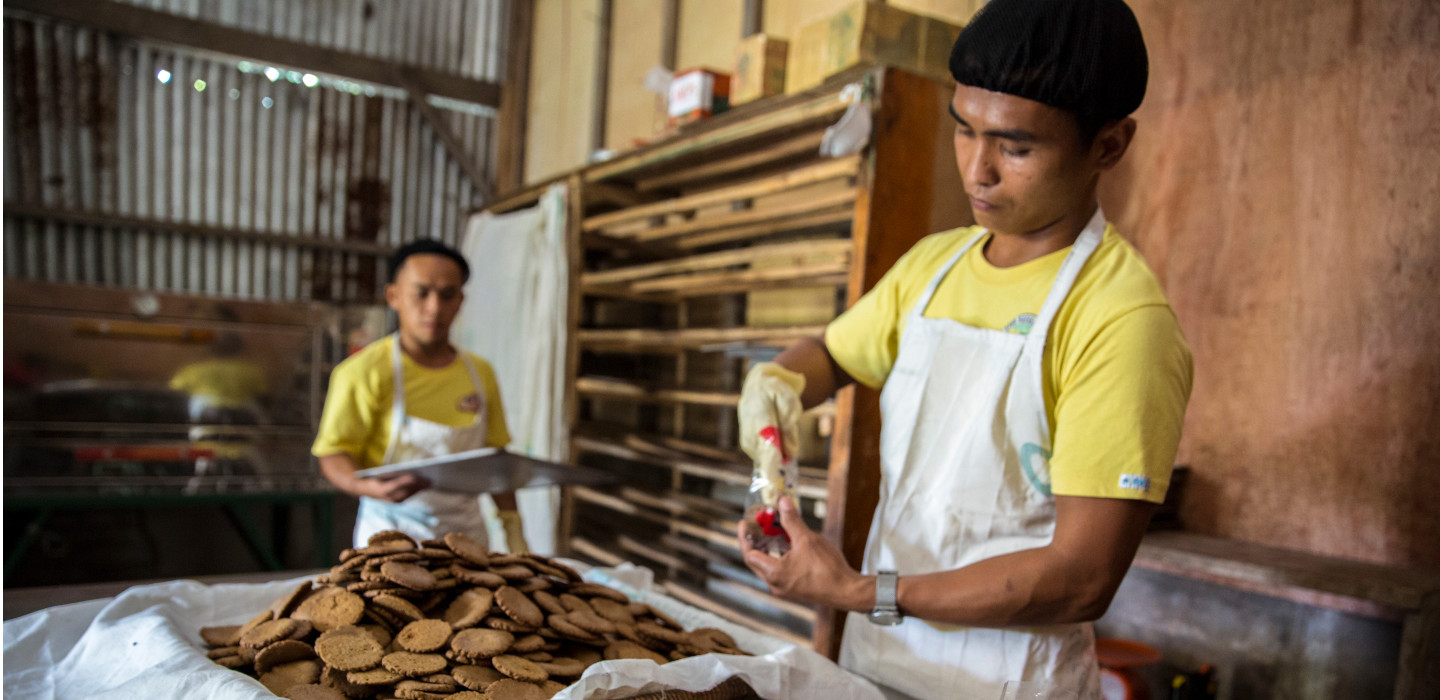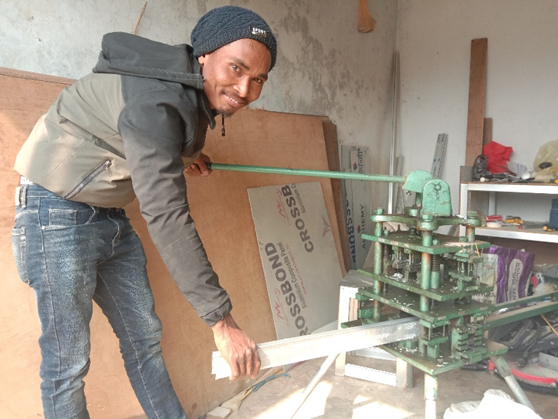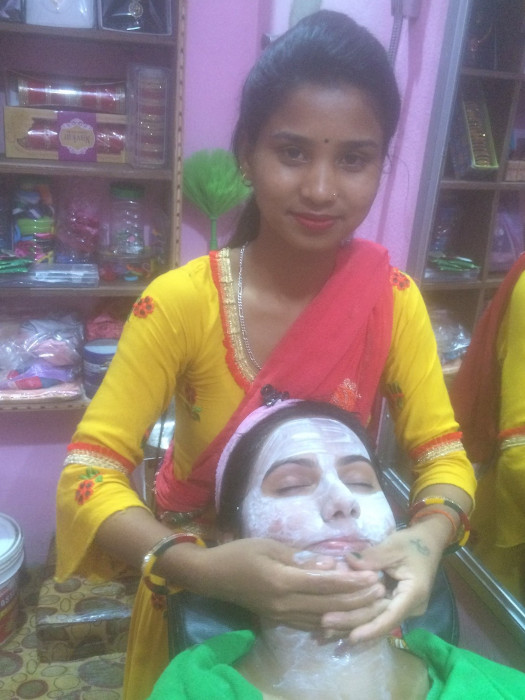Nepali youth prepare for their dream jobs with IFAD-supported courses
IFAD Asset Request Portlet
Asset Publisher
Nepali youth prepare for their dream jobs with IFAD-supported courses
Estimated reading time: 4 minutes
Ranjana Chaudhary’s story sounds like the stories of many thousands, if not millions, of young people in Nepal. A health emergency pushed her predominantly agricultural family, never very well off, into poverty, forcing her to drop out of school. Given her limited options, she took a job at a beauty salon – but as she had no experience, she had to volunteer her time. Nevertheless, Ranjana saw it as an opportunity to learn.
“While working in the salon, I realized I really enjoyed it,” she said. “I wanted to do more and become an expert. But I had no idea how.”
Like Ranjana, 21-year-old Devkant Chaudhary (no relation) couldn’t pursue higher education due to a lack of funds. It also wasn’t a priority.
“My family is in agriculture and they thought it was more important that I earn rather than get an education,” he explained. “But the requirement for agricultural labour is seasonal. So I had a lot of time on my hands when I wasn’t earning.”
At first, he helped out in a glass shop in a neighbouring village during the off season. It didn’t pay much, but it kept him occupied. Then, one day, he met some aluminum fabricators who came to the shop and became interested in their trade.
“The more I found out, the more I realized that I had found my passion,” he added. “But I didn’t know how to get the skills to become a master craftsman.”

Devkant pauses for a photo with one of his metalworking machines.
Too many young women and men in Nepal – a country where 6 out of 10 people are under 30 years old – have similar stories. Even before the COVID-19 pandemic disrupted businesses, jobs and livelihoods, a full 11.4 per cent of Nepal’s population – more than 900,000 people – were looking for work. Nearly 70 per cent of those job seekers were between the ages of 15 and 34. And because more than half of the available jobs in Nepal are in the informal sector, these figures are bound to have gone up, given the devastating economic impact of the pandemic.
This lack of productive and renumerative employment for the country’s youth is not without economic and social costs – not only for young people, but for their families and communities too. For example, youth are more likely to migrate out if local economic conditions are weak. Indeed, a recent survey found that nearly half of all Nepali households had a member who either was currently working overseas or had just returned.
Yet the Government of Nepal also knows there are potential socio-economic benefits – at all levels of the economy – as a result of the “youth bulge” the country is experiencing. This is reflected in its work with the IFAD-supported Samriddhi project, which promotes self-employment and small businesses so that young people can generate better incomes and jobs. Through its partners, the project also provides vocational training and apprenticeships that lead to gainful and decent work.
At these crucial points in their lives, both Ranjana and Devkant learned about the courses offered through Samriddhi. Last June, a friend told Devkant about a nationally certified metalworking course. Ranjana, then only a teenager, found a beautician training programme in Bara that was perfect for her. Crucially, Samriddhi supports these courses so that cash-strapped young people like Ranjana and Devkant can enroll without going into debt.
When Devkant began his training course, he was eager to learn all he could. “It was the first step towards my dream,” he said.
For Ranjana, the course came with an extra-long commute. “I used to cycle 10 km each way to the location of the training,” she laughed. “But it was worth it. I am now certified by the National Skill Testing Board.”

Ranjana at work in her salon.
With their certifications in hand, Ranjana and Devkant each set out to open their own business – but there were more bumps in the road.
As a young woman with little experience, Ranjana found it difficult to convince first her family, and later financial institutions, to invest in her dream of starting her own beauty salon. She had to turn to informal channels to raise funds. “There are no financial institutions for people like me, who don’t have collateral to offer,” she said.
Devkant’s experience was no different – but, as in Ranjana’s case, he was able to convince a relative to lend him the money.
Armed with the necessary capital, Ranjana and Devkant were finally able to get started. Ranjana opened her salon, and Devkant started up his own metalworking shop.
Ever since then, they have gone from strength to strength. They both make enough money to support their families. They are both employers, paying their good luck forward. And they are both hungry for more – to learn and grow, to expand their businesses.
Their stories are also similar to those of many who’ve completed the Samriddhi courses. To date, over 97 per cent of those who have completed the trainings – more than 5,000 youth in total – have a job. Sixty-four per cent of them are considered “gainfully employed” – that is, they’re working in the field they studied and they’ve been earning a decent sum for at least six months (in this case, an average of 10,000 Nepalese rupees per month).
They also have some advice for other youth in developing economies. “Teenagers should select the right career and work hard. Then it is easy to achieve whatever you want,” Ranjana says. “I am hopeful I can do even better in the near future.”
Read more about IFAD’s work in Nepal.
Publication date: 12 August 2020